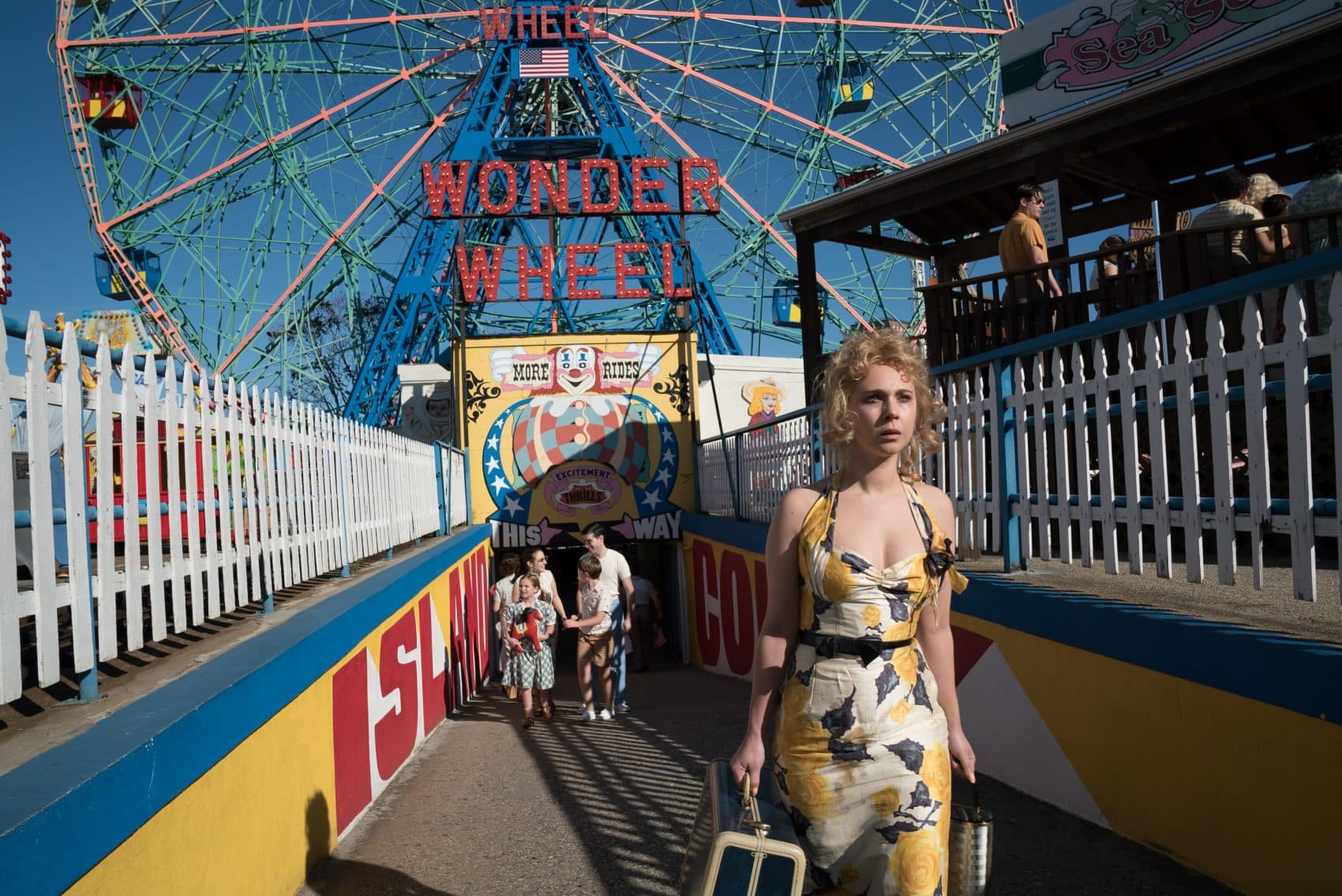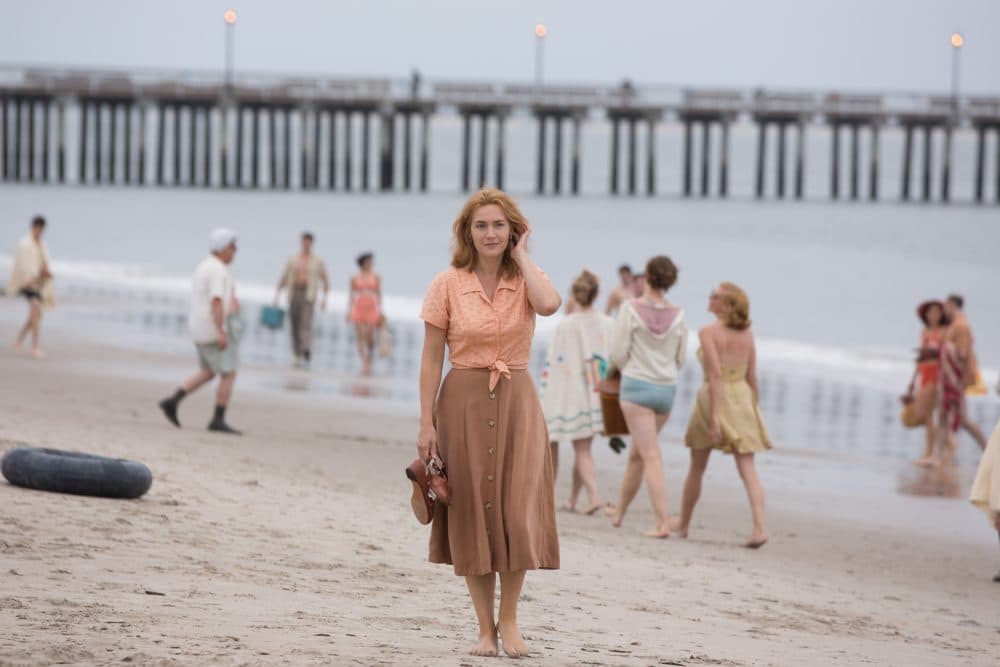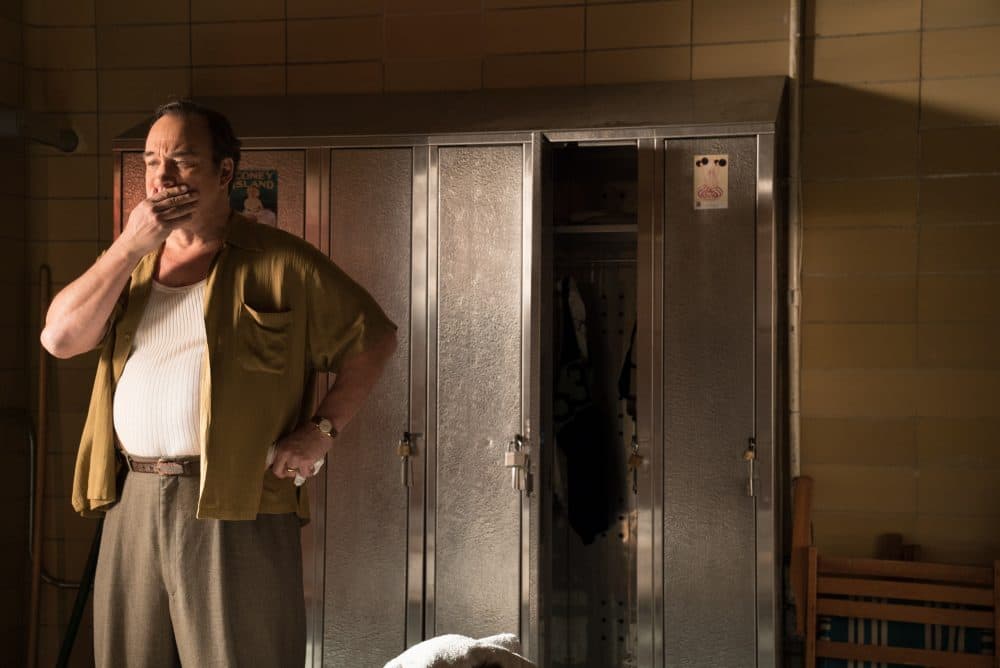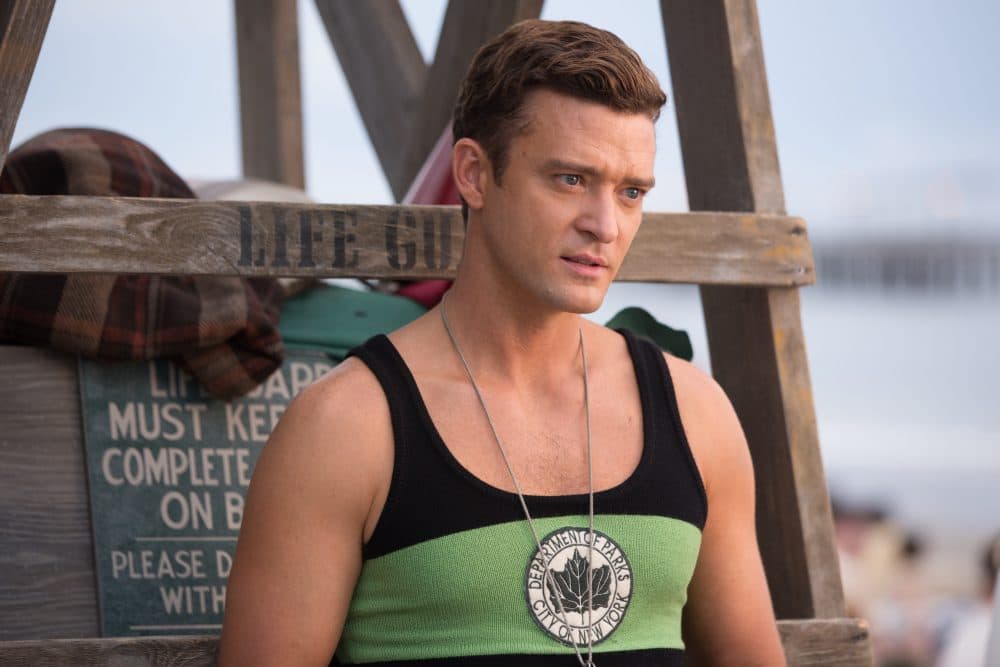Advertisement
Review
Woody Allen's 'Wonder Wheel' Doomed By Dogged Familiarity And Predictability

There’s a priceless bit in “Annie Hall” where Woody Allen’s Alvy Singer attributes his nervous disposition to growing up underneath the roller coaster at Coney Island, followed by a hilarious insert shot of young Alvy trying to eat soup as the house shakes to its foundations. Forty years later, the fractured family of Allen’s “Wonder Wheel” lives in an apartment alongside the amusement park attraction from which the film takes its title, their conversations shouted over the constant drone of calliope music while incandescent colored lights glare through the windows at night. It’s Alvy’s childhood all over again, except this time the film is supposed to be a drama.
Such self-plagiarism is nothing new for Woody Allen, who has been cranking out a movie a year for damn near half a century, and these days mostly seems to be mixing and matching scenes and themes from his previous pictures more out of habit than inspiration. A big exception was last summer’s “Café Society,” Allen’s most ambitious and affecting movie in ages, energized by a luminous performance by Kristen Stewart and Vittorio Storaro’s breathtaking digital cinematography. Alas, “Wonder Wheel” is a return to the familiar grind, running off a checklist of the filmmaker’s tired pet obsessions while occasionally playing like a parody of post-war Broadway miserabilism.

Set sometime in the early 1950s, the film stars Kate Winslet as Ginny, a failed actress working as a waitress at a Coney Island clam shack. Her husband Humpty (Jim Belushi) operates the carousel, while Ginny’s young son from a previous marriage runs around the boardwalk lighting fires. She’s been having a secret affair with callow lifeguard Mickey Rubin (Justin Timberlake), a former G.I. turned Greenwich Village hipster who aspires to be a playwright and over-enthusiastically narrates our sad story, occasionally pausing to apologize for his more melodramatic flourishes. (I’d say Mickey should stick to his day job, but he’s usually too busy reading about Hamlet or Oedipus to look up and see if anybody’s drowning.)
Into these lives of not-so-quiet desperation wanders Carolina (Juno Temple), Humpty’s long lost daughter he hasn’t seen since she ran off and married a gangster so many years ago. Now, Carolina’s on the run from her abusive husband and his goombah gang, who are all rightfully worried that she knows too much about their business. Although Allen’s screenplay takes great pains to try and explain more than once why moving back in with your dad in Coney Island is a smart way to hide from the New York mafia, I remain unconvinced.
The deliberately stagy “Wonder Wheel” jams these characters into that cramped apartment with the crazy colors blasting in from outside, piling them all onto one another’s last nerves for long, blowsy theatrical arguments while Mickey makes self-conscious references to Eugene O’Neill. (It felt more like bad Arthur Miller to me, maybe “A View from the Ferris Wheel?”) There’s a generous reading of the movie going around suggesting that this all might be an intentionally lousy play penned by our novice narrator, but I’m not buying it.

Winslet gives one of her most pinched, unpleasant performances, hitting the R’s extra-hard on a brittle American accent and apparently trying to one-up Cate Blanchett’s Jasmine at her bluest in the Allen-penned histrionics department. Belushi brings a touching vulnerability to his under-shirted cartoon caricature, almost like Stanley Kowalski as played by Fred Flintstone. Timberlake flounders, the natural born showman desperately trying to oversell every bum line, while Temple slyly underplays and comes out as the only performer not drenched in flop sweat by the end.
But at least Storaro’s back, this time with an audaciously artificial visual scheme leaning into the stagebound nature of Allen’s script. Those revolving Coney Island lights bathe the characters in colors corresponding to their moods, with squabbles warming up into scalding hot reds and then cooling off into ice blues as tempers dissipate. He uses more green screens than a “Star Wars” movie, framing this small, sordid tale within massive, postcard-perfect vistas, the tacky falseness of the images commenting on the rottenness at the core of surface nostalgia.
It’s thrilling to watch the 77-year-old cinematographer of “Apocalypse Now” pushing our 82-year-old director into such wild experiments with emerging technologies, and this new creative partnership with Storaro is the most heartening development of Allen’s late career.
Too bad the screenplay’s all stuff plucked from Woody’s recycling bin, including not one but two instances of the old Allen standby in which the manly stud gives flighty women books to read. (His idea of courtship always involves assigning homework.) There are plenty of tired riffs on the role of chance in a godless universe, and the lack of divine consequences for those who trespass. He eventually provides Winslet with a full-blown Blanche DuBois meltdown — which feels a bit too soon after doing the same for Blanchett only four years ago — but then it’s been a staple of Allen’s oeuvre ever since Woody and Diane Keaton play-acted “A Streetcar Named Desire” back in 1973’s “Sleeper,” with Keaton as a killer Kowalski.

There’s been some hand wringing in the press over echoes of the filmmaker’s own past scandals with Timberlake playing a sleazy writer who ditches Winslet for her stepdaughter, and Allen even seems to kid his most famous quote when a philosophical beatnik played by David Krumholtz announces, “the heart has its own hieroglyphics" as justification for all that follows.
But remember that Woody Allen characters have been blithely keeping it in the family ever since he and Michael Caine each hooked up with Hannah and one of her sisters way back in 1986, so I find it curious that critics are acting alarmed all of a sudden. There are no bombshells or confessions here. His movies have always just been kinda gross in this regard, and I'd argue that Timberlake's Mickey is hardly presented as a hero.
In fact, it's this very dogged familiarity that ultimately dooms “Wonder Wheel," the innovative cinematography and dynamic visual flourishes squandered in the service of Allen’s exhausted, predictable peccadilloes. Despite Storaro’s sterling contributions, the amusement park ride outside Humpty and Ginny’s apartment isn’t the only wheel that's spinning here.
